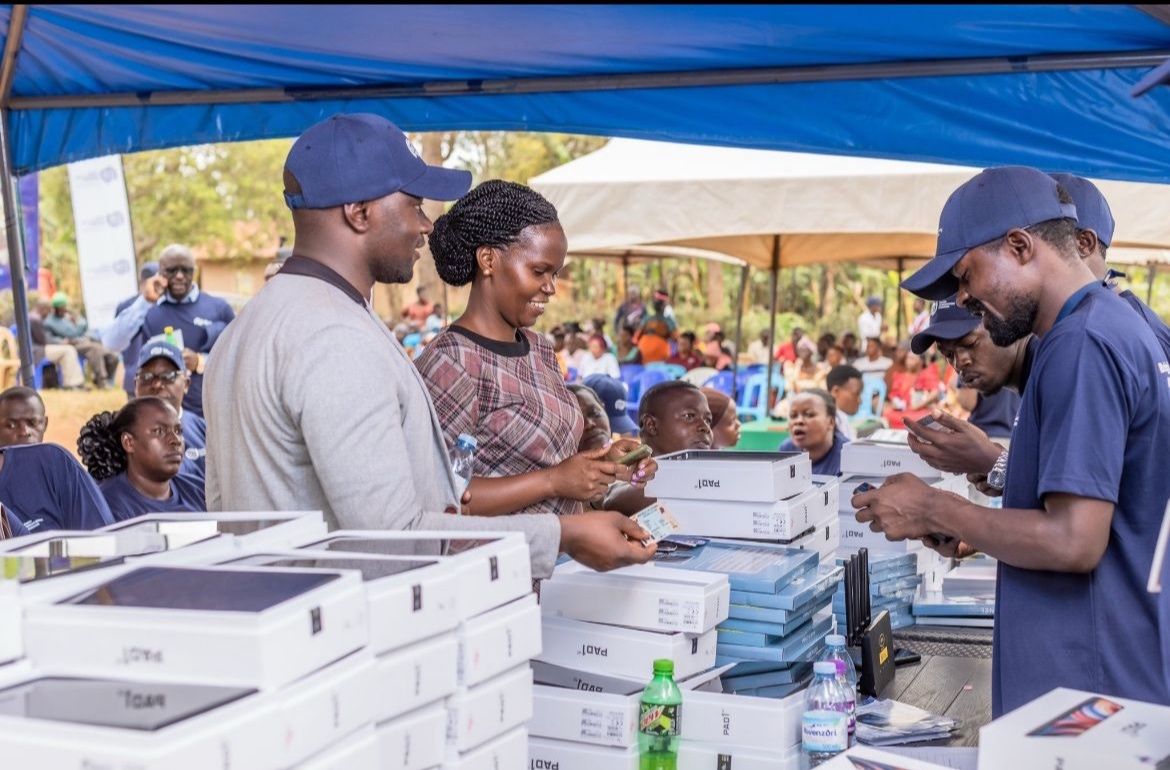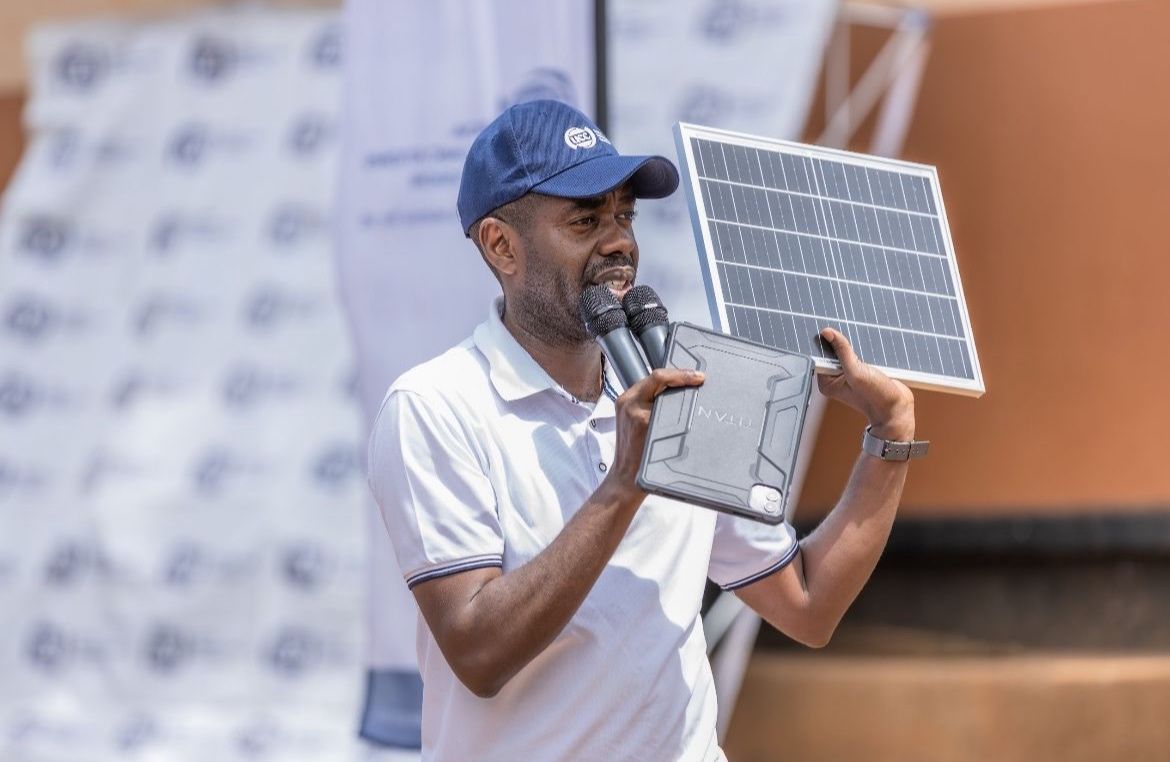Kalungu District witnessed a milestone in digital empowerment as the Uganda Communications Commission (UCC), through the Uganda Communications Universal Service and Access Fund (UCUSAF), distributed over 150 tablets to residents. This initiative is part of an ongoing national effort to bridge the digital divide, enhance access to online resources, and promote socio-economic development.
The distribution, which aligns with the government’s broader agenda of fostering digital inclusion, was graced by the Permanent Secretary of the Ministry of ICT & National Guidance, Dr. Aminah Zawedde.
Addressing the gathering, Zawedde underscored the government’s commitment to ensuring equitable access to technology, particularly in underserved communities. She emphasized that the initiative is a crucial step toward enabling Ugandans to harness digital opportunities in education, business, and communication.

To date, over 19,000 devices have been distributed across 120 villages in Uganda, with plans to reach even more communities. These efforts, spearheaded by the Ministry and UCUSAF, aim to provide digital access to every household, fostering a more inclusive and technologically empowered society.
James Beronda, the Director of UCUSAF at UCC, highlighted the durability and accessibility of the devices, noting that each tablet is equipped with a hard cover and a solar panel, ensuring usability even in areas without electricity. To further support digital access, the devices come with pre-installed SIM cards offering six months of free data, enabling seamless connectivity and continued learning.
The distribution process is conducted through local LC1 chairpersons to guarantee fair and equitable allocation. Parents and community members were urged to safeguard the tablets and participate in training sessions and community WhatsApp groups to maximize the benefits of the initiative.
According to available statistics, Uganda with a population of over 45 million has only 12 million smart phones, with 4G network coverage at 43.4% and internet access at only 29%. There is still need to increase internet access across the country especially in the rural areas.

By extending digital access to rural areas, this program is not just providing devices but creating pathways to knowledge, economic opportunities, and a more connected future for Ugandan communities.




